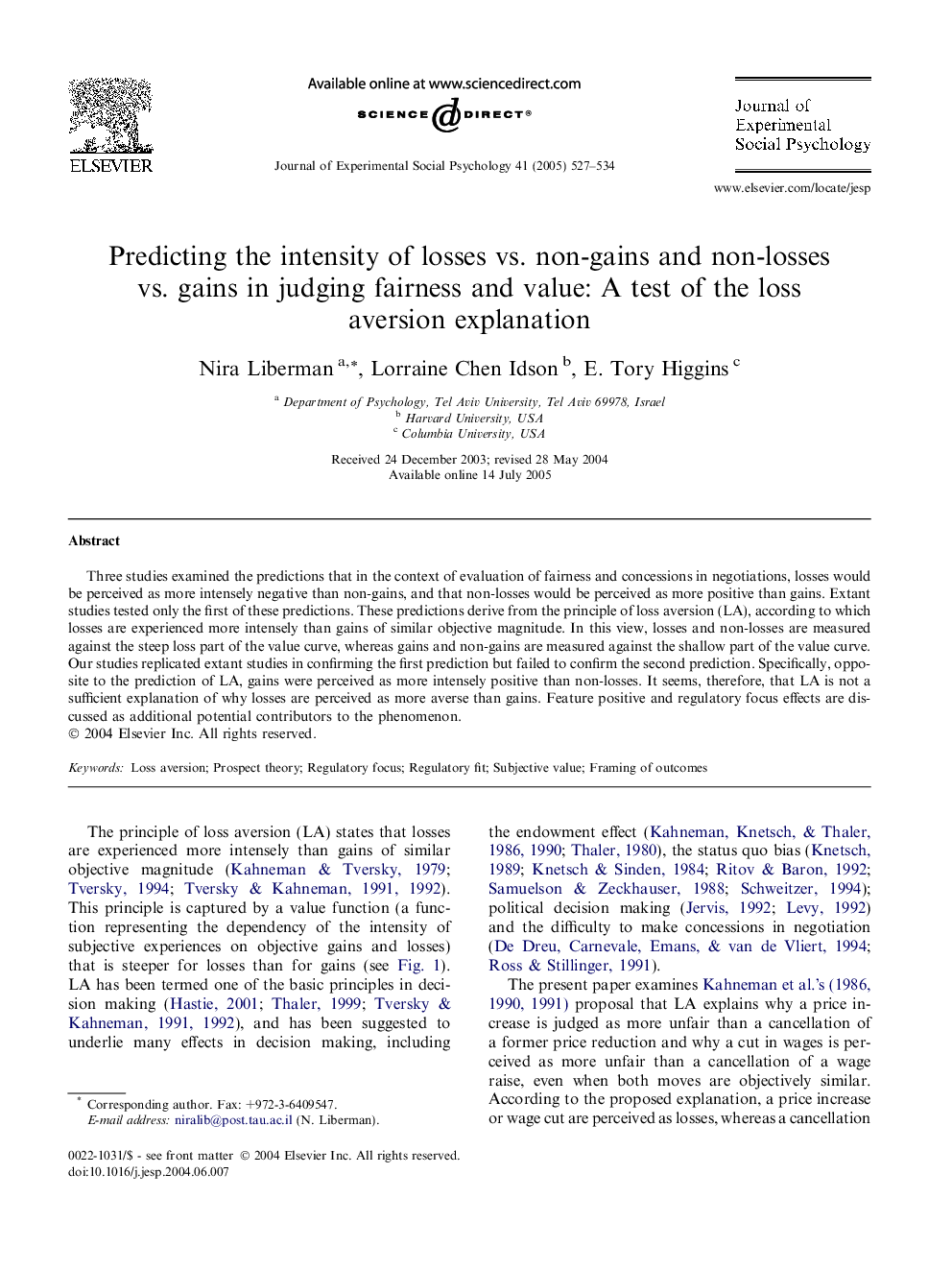| Article ID | Journal | Published Year | Pages | File Type |
|---|---|---|---|---|
| 10468706 | Journal of Experimental Social Psychology | 2005 | 8 Pages |
Abstract
Three studies examined the predictions that in the context of evaluation of fairness and concessions in negotiations, losses would be perceived as more intensely negative than non-gains, and that non-losses would be perceived as more positive than gains. Extant studies tested only the first of these predictions. These predictions derive from the principle of loss aversion (LA), according to which losses are experienced more intensely than gains of similar objective magnitude. In this view, losses and non-losses are measured against the steep loss part of the value curve, whereas gains and non-gains are measured against the shallow part of the value curve. Our studies replicated extant studies in confirming the first prediction but failed to confirm the second prediction. Specifically, opposite to the prediction of LA, gains were perceived as more intensely positive than non-losses. It seems, therefore, that LA is not a sufficient explanation of why losses are perceived as more averse than gains. Feature positive and regulatory focus effects are discussed as additional potential contributors to the phenomenon.
Related Topics
Life Sciences
Neuroscience
Behavioral Neuroscience
Authors
Nira Liberman, Lorraine Chen Idson, E. Tory Higgins,
